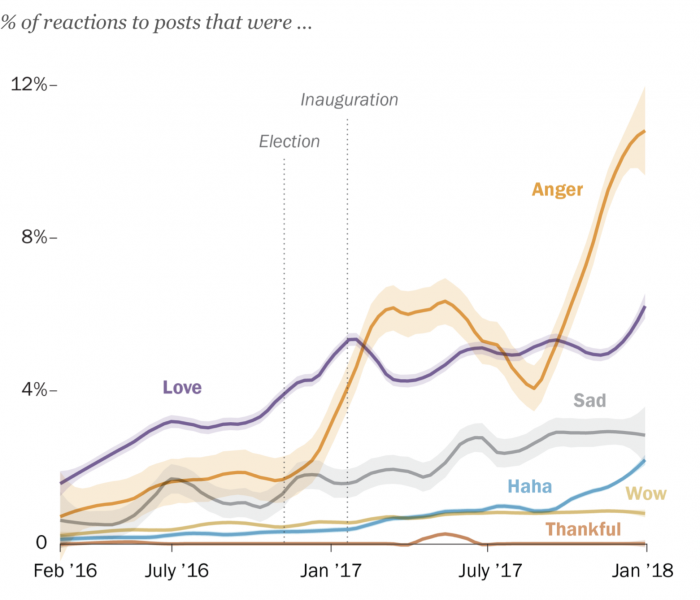
Legislators’ Facebook audiences became much more likely to react to posts with Facebook’s “angry” button in the wake of the 2016 election. Prior to the election (but after the “angry” feature was released), just 1 percent of all reactions to posts by Democrats were angry. After the election, that share increased to 5 percent, on average. Among Republicans, the share of angry reactions increased from 2 percent before the election to 6 percent after. While “likes” remain the most common reaction, “angry” was the most frequently used of the six alternatives (such as “haha,” “wow,” and “love”). This has not always been the case. Prior to Trump’s inauguration, the “love” reaction was the most commonly used alternative to “likes,” but it has since been largely eclipsed by “angry.” The use of angry reactions to congressional Facebook posts rose throughout 2017, reaching its highest observed rates at the end of the year, comprising 9 percent of all reactions to the average Democrat’s posts in December 2017, and 13 percent of the average Republican’s.
Angry reactions were especially likely to ensue when posts expressed political opposition. Posts that expressed opposition to Trump received an estimated five times as many angry reactions as posts that did not express support or opposition toward any figure or group. When Democrats expressed opposition to Republicans, they earned six times as many angry reactions, on average. Because the emotional reactions were not available across the entire timeframe, this analysis is based upon posts created between Feb. 23, 2016 (the day before the reactions were released) and Dec. 31, 2017.
NewsWhip previously looked at reactions to hyper-partisan Facebook pages and found that “angry” was the most common reaction.